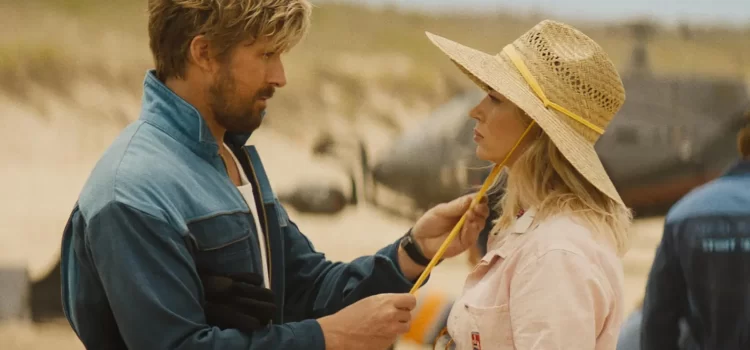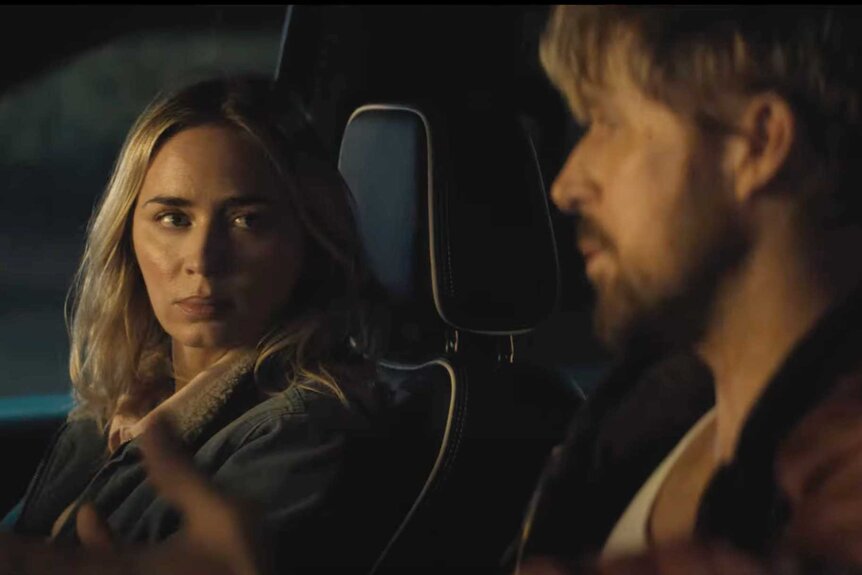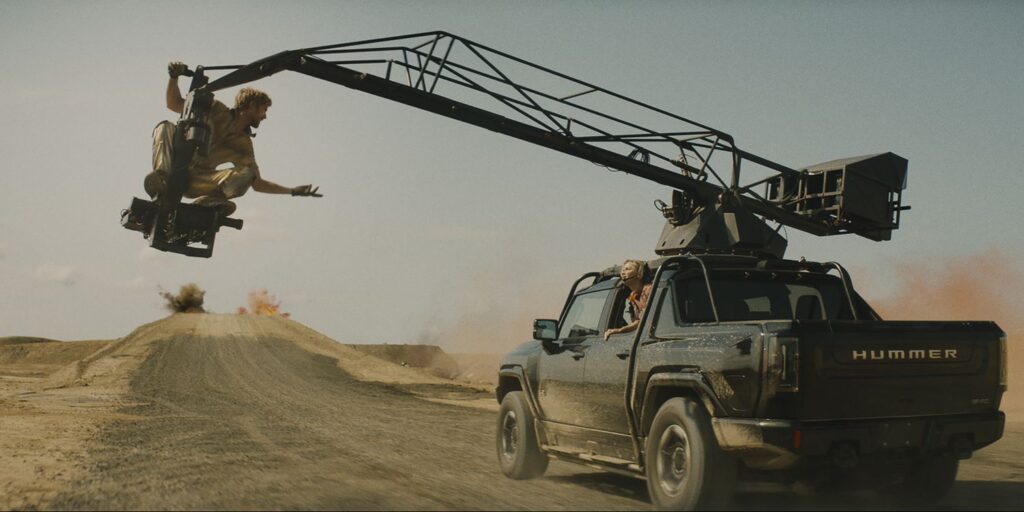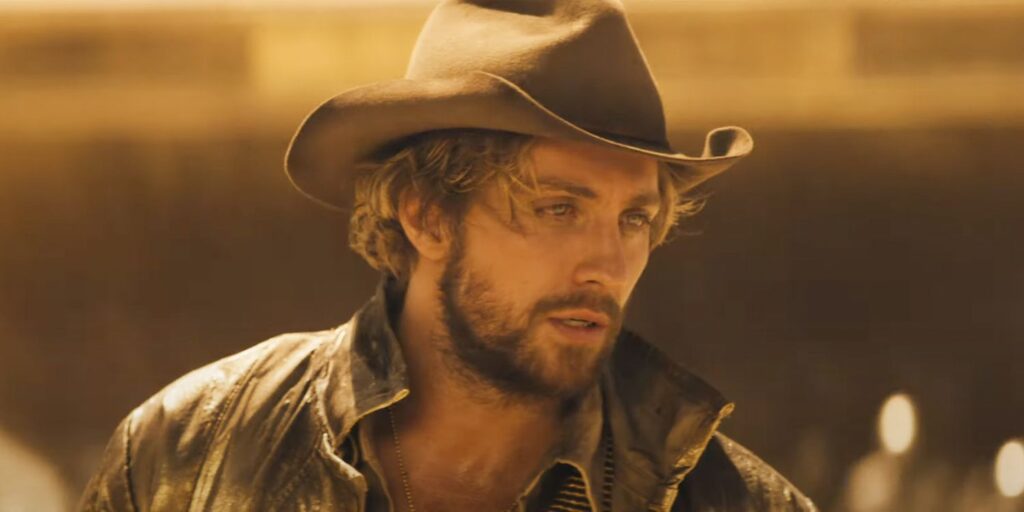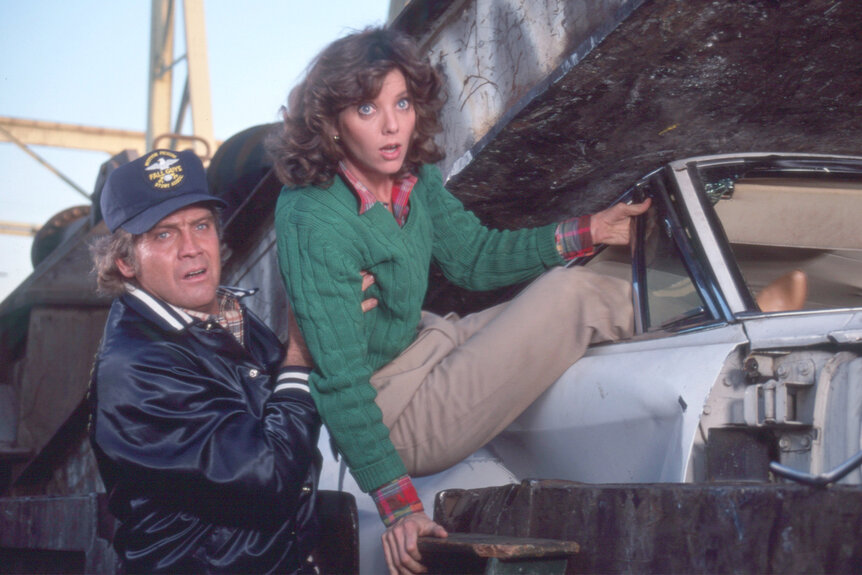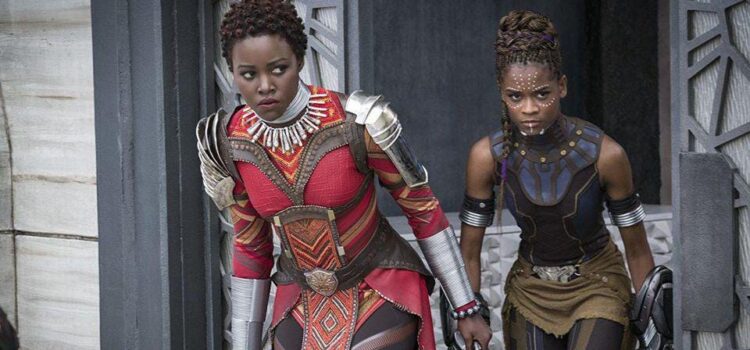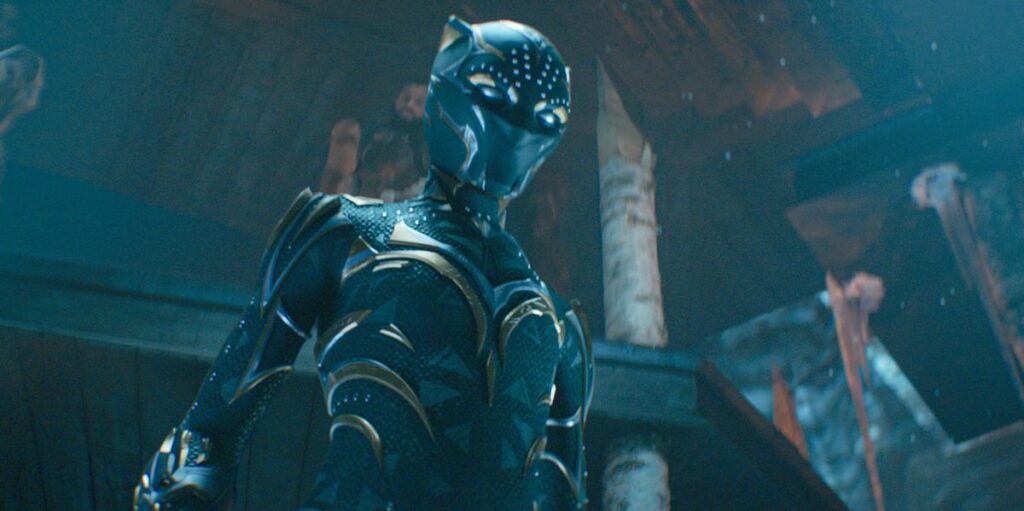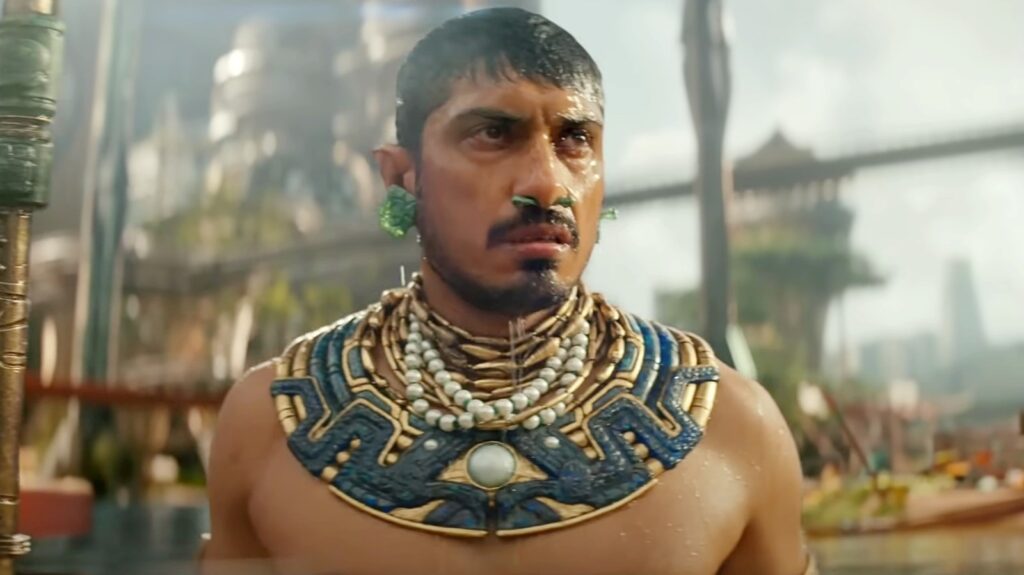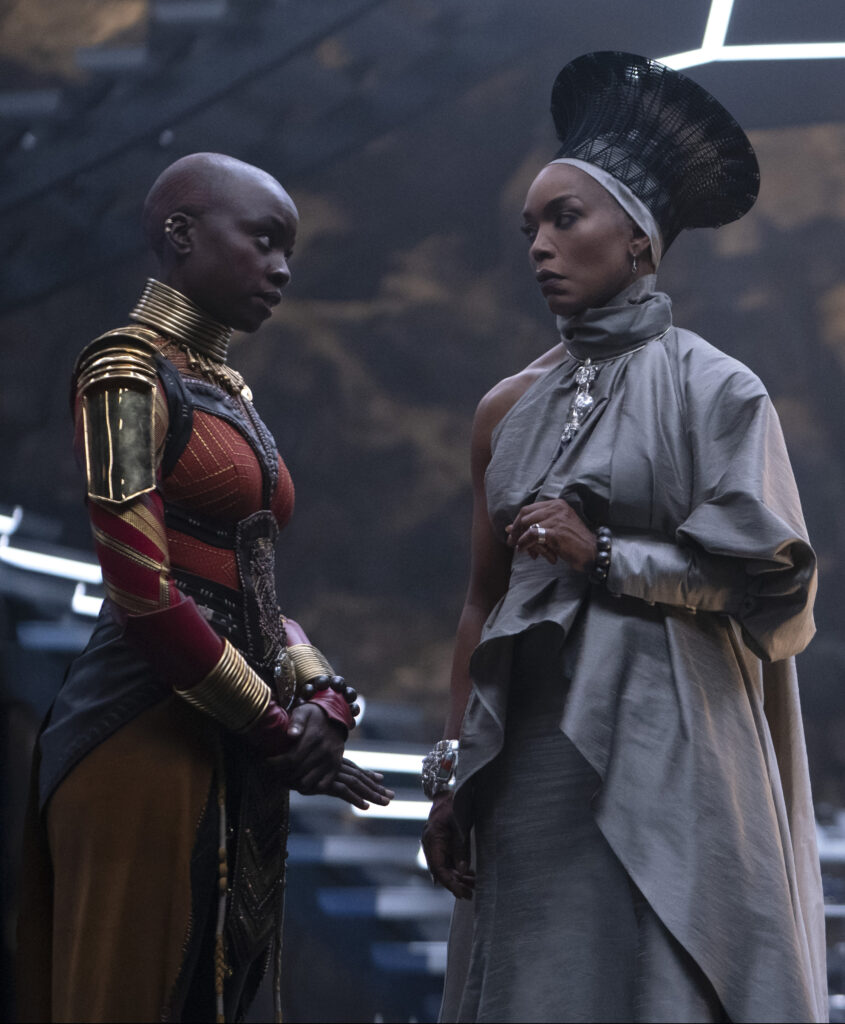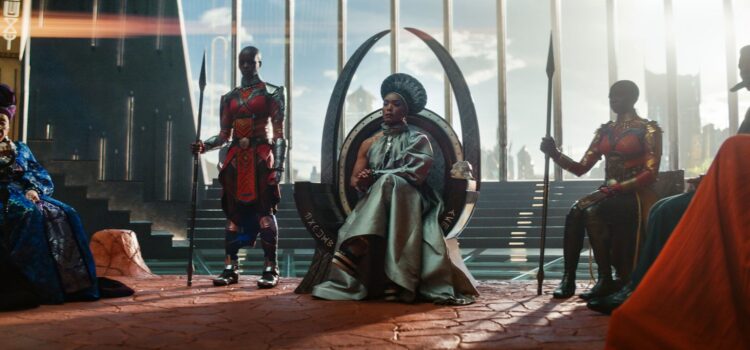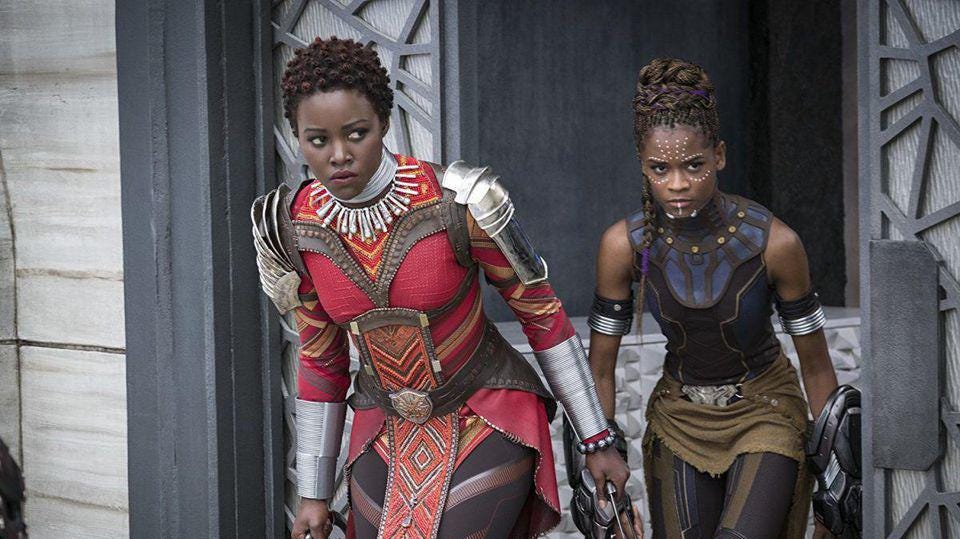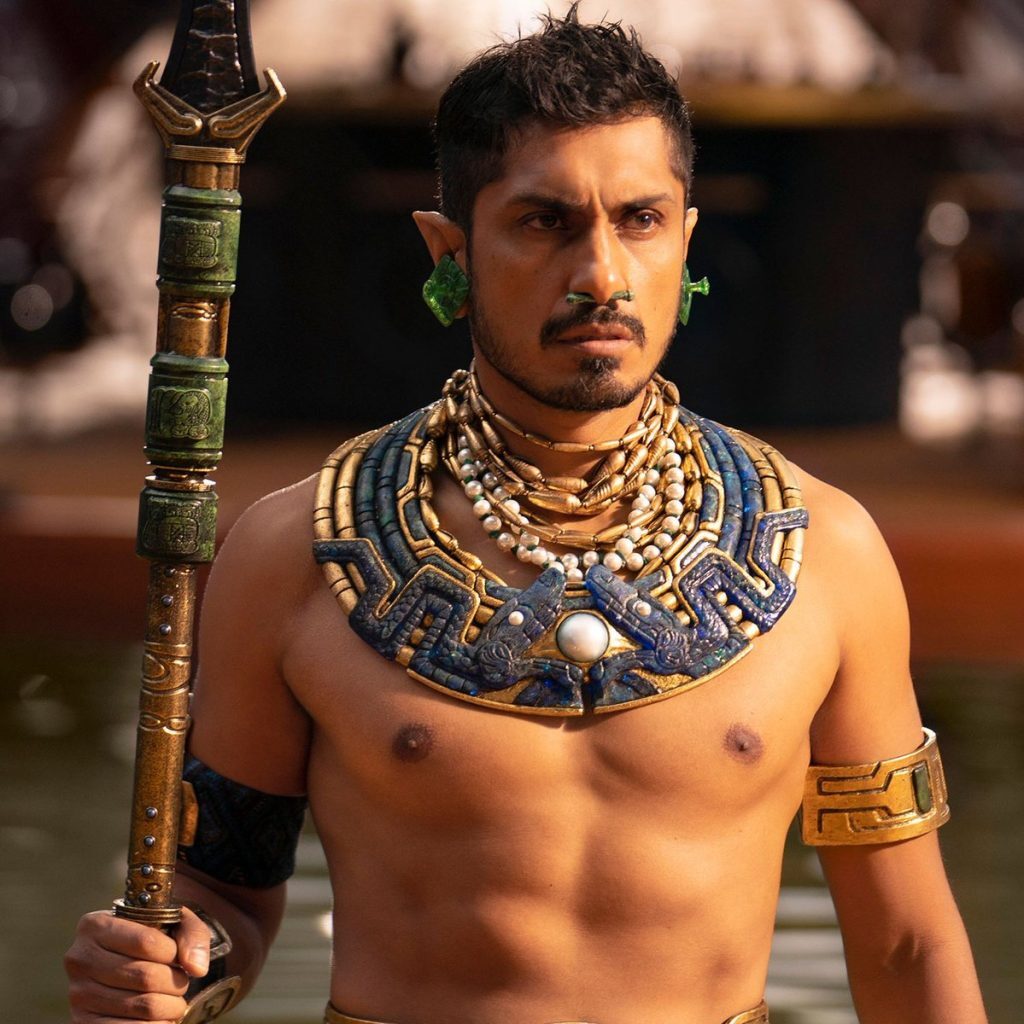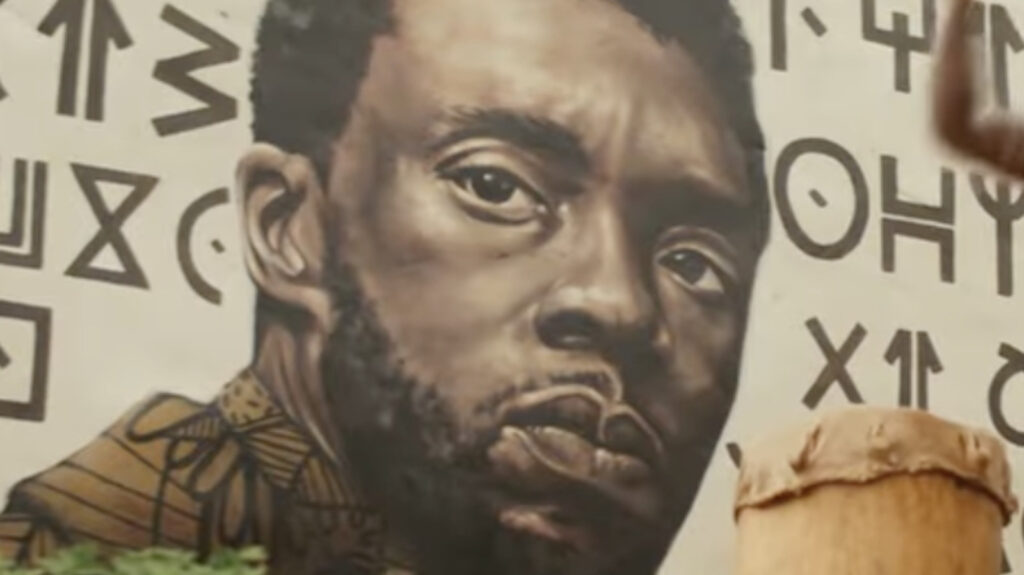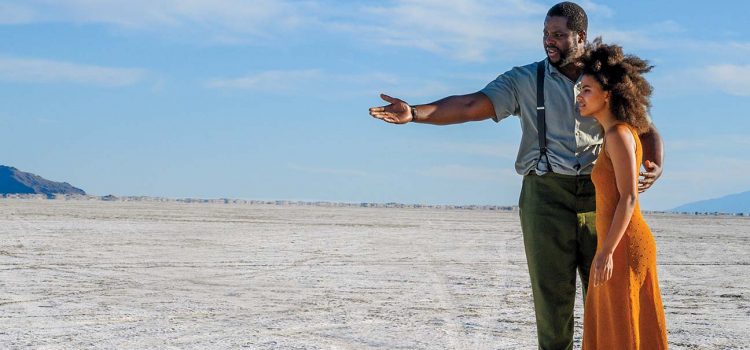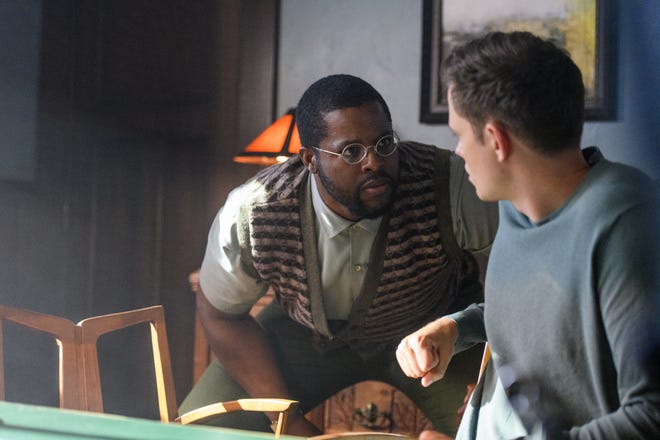By Alex McPherson
Fun, charming, and heartfelt, albeit insubstantial, director David Leitch’s “The Fall Guy” is purely entertaining – letting us watch two hot leads sizzle up the screen in an action rom-com that’s an ode to stunt teams and behind-the-scenes workers.
Leitch’s film, very loosely based on the 1980s TV series of the same name, centers around Colt Seavers (Gosling), an outwardly confident yet insecure stunt double for the superstar Tom Ryder (Aaron Taylor-Johnson, suitably obnoxious), who lies about doing his own stunts. Colt is in a fling with camera operator Jody Moreno (Emily Blunt), and everything seems great:
Colt can do what he loves, impress Jody, and feel cool. At least, until it all falls apart. Colt breaks his back while redoing an aerial stunt — Tom claims that Colt’s face was visible on Take One — which makes him question his life choices. Colt (perhaps because of his bruised ego), pushes Jody away, and wants to abandon the profession altogether. Jody is heartbroken, and Colt begins working as a valet at a Mexican restaurant.
Eighteen months later Colt, stuck in a rut and regretting his decisions, is contacted by the high-strung, Diet-Coke-addicted Gail Meyer (Hannah Waddingham), Tom’s film producer. Gail informs Colt that Jody is directing her first film — a mishmash of “Dune” and “Mad Max” called “Metalstorm” — and Jody wants Colt to come aboard. Colt is thrilled, seeing this as a chance to get back together with Jody. He heads to Sydney, Australia, to begin filming.

Upon arrival, however, Colt discovers that Jody never actually asked for him. On the contrary, she’s highly resentful, at one point taking out her anger by making Colt repeat a painful stunt until her bloodlust is satisfied. But there’s still a flirtation between them, a flicker of the love that used to be, that shines through in their alternately combative and affectionate banter.
Before long, Gail reveals to Colt that Tom has gone missing and tasks Colt with finding him before time runs out and production shuts down on “Metalstorm.” This could be Colt’s chance to save Jody’s movie, redeem himself in her eyes, and rekindle their bond. Thus, the stage is set for an adventure that succeeds most if viewers sit back, let the increasingly convoluted plot wash over them, and go along for the crowd-pleasing ride.
Indeed, “The Fall Guy” is a breezily diverting experience, with pop culture references galore and an obvious appreciation for filmmaking and the people who work tirelessly behind the scenes to make it all a reality. It’s also an opportunity to bask in the star power of Gosling and Blunt, whose dynamic gives the film a sexy burst of energy that buoys a plot that becomes a little too unwieldy for its own good by the chaotic final act.

Leitch’s film tries to simultaneously be a cheesy romantic comedy, a self-effacing send up of blockbusters, and a tribute to the tireless efforts of stunt crews, but it ultimately short-changes all of these threads, becoming far less than the sum of its parts. But damn, is it a likable ride nonetheless.
Over the years, Gosling has proven himself as a versatile actor, and “The Fall Guy” gives him yet another opportunity to shine. His performance as Colt won’t win any awards – Leitch doesn’t bother much with backstory or give Colt’s “serious” moments time to breathe without balancing them with self-aware humor or broad slapstick comedy. However, Gosling’s brand of goofy charisma works well here, as Colt becomes the lead star of his own action film.
Gosling’s always a joy to watch, whether engaging in Leitch’s creatively-staged action sequences (a psychedelic nightclub beat-down and a battle within a garbage-truck-turned-wrecking ball are the standouts), preparing for a particularly grueling stunt on a film set, or crying his heart out to Taylor Swift’s “All Too Well” while reminiscing about his former fling with Blunt’s Jody. Much of the character’s appeal rests on Gosling’s shoulders, though, with him delivering sporadically eye-rolling dialogue with infectious sincerity.
Blunt is given less to work with here – and is largely sidelined for most of the film’s cluttered second act – but she has great chemistry with Gosling. Jody’s a passionate, career-focused woman, but can only hide her continued yearning for Colt for so long. Colt and Jody’s back-and-forth dialogue and will-they-won’t-they dynamic (elevated by Leitch’s perhaps overly self-assured direction) never loses its appeal, regardless of the story’s predictability.
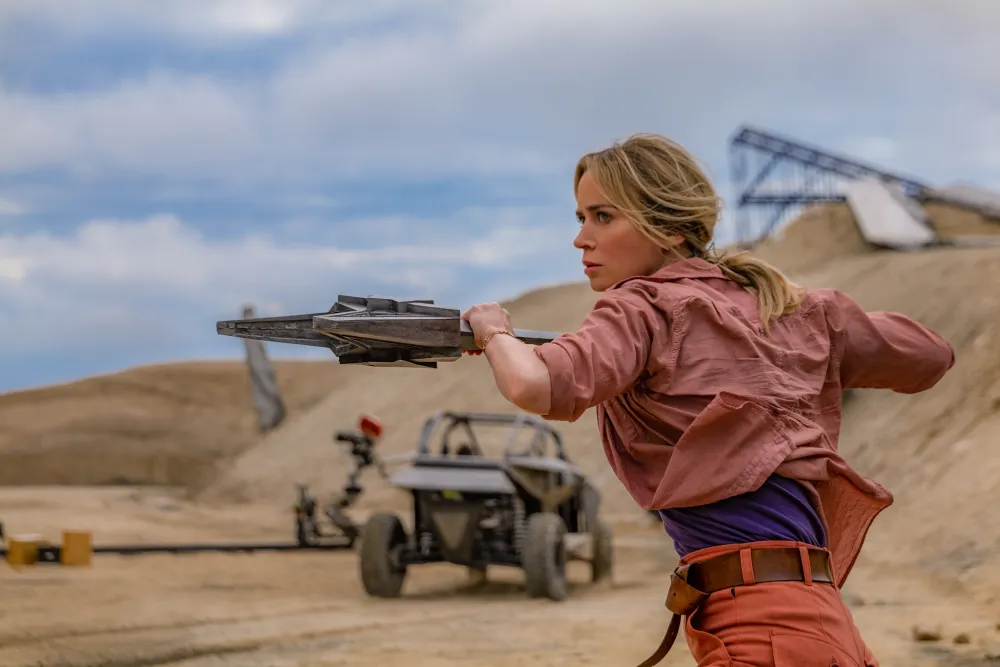
Less successful is the satirical industry exposé element of the plot, which becomes too cartoonish, and almost becomes a parody of itself. It’s disappointing, in a way, since Leitch makes a lot of effort to immerse us in the thick of the “Metalstorm” film set early on, emphasizing all the coordination necessary to craft the perfect scene.
There’s an obvious reverence for the process that’s satisfying and immersive, but “The Fall Guy” ultimately doesn’t do much with this set-up. The peek-behind-the-curtain approach becomes window dressing for a film that leans into extremes, distracting us from otherwise relevant commentary on greed, fame, and AI.
And that’s perfectly fine. As a summer blockbuster, “The Fall Guy” delivers, chock full of suitably crunchy fight sequences (Leitch’s background in stunts and action films is on full display), thrilling chases, quip-filled, reference-heavy dialogue, and a central romance that’s earnest and sentimental, carefully tuned for date-night-viewing.
But there are no stakes, which sits strangely, since the nature of stunt work involves performers putting themselves at risk for our entertainment.
There’s a lack of emotional engagement outside of watching beautiful people in a goofy lark that’s watchable without being especially memorable. Supporting turns from Winston Duke, Stephanie Tsu, and a dog that only responds to commands in French are amusing, but underdeveloped.
Footage of Leitch’s actual stunt crew on the film plays over the credits, too, and one can’t help but wish “The Fall Guy” paid more attention to the sacrifice and bravery that goes into the craft — rather than devolving into 80s-inspired ludicrousness.
The film remains consistently funny, however, and never boring. It deserves to be watched on the big screen with a lively crowd as a safe, reliable, mainstream experience accompanied by a large bucket of popcorn.
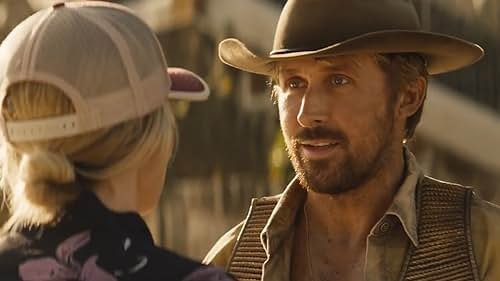
“The Fall Guy” is a 2024 action thriller comedy romance directed by David Leitch and starring Ryan Gosling, Emily Blunt, Aaron Taylor-Johnson, Hannah Waddingham, Stephanie Hsu, Winston Duke and Teresa Palmer. It is rated PG-13 for action and violence, drug content and some strong language. It opened in theatres May 3. Alex’s Grade: B
Alex McPherson is an unabashed pop culture nerd and a member of the St. Louis Film Critics Association.


